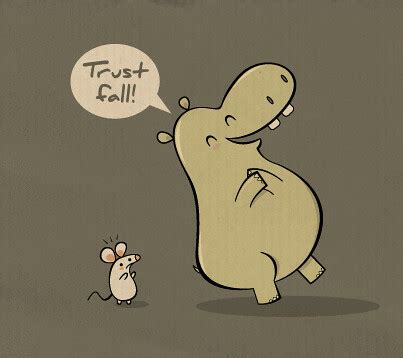I was bombing and I was on the verge of losing everyone’s trust.
As I talked at the front of the cramped meeting room, my team of fifty sales reps and managers were expressionless. I could see their faultless faces hiding frustration. No one nodded. No one smiled. Practiced expressions of non-emotion. Nothing I said helped.
Then at one point, I was interrupted by a manager, “This sounds like the fine print of an insurance contract.” OUCH.
When I had “stepped in it” in the past, managers usually helped to contain the blowback, or at least remained quiet until things improved. They’d soften the message, collect feedback, and help course correct.
This was about as close to a full-scale rebellion I’ve ever seen. In hindsight, I can’t say I blame them.
It was all my fault. I hadn’t built the trust required to ask for what was needed.
You can not lead if you don’t have the trust of your team.
All leadership sits atop a bedrock of trust.
Failure to build trust creates everything we try to avoid as leaders: turmoil, dissention, self-serving politics, high turnover, sloppiness, and poor results. No leader and no team can be successful without a high degree of trust.
Teams with high trust become resilient, cooperative, problem solving machines. They overlook petty disagreements, focus on results, and help each other.
After that terrible meeting, I knew I was in deep water. This is how I rebuilt trust, one interaction at a time, and became adored by my team.
- I admitted mistakes. I learned that people follow people, not perfect leaders. When I was vulnerable and admitted mistakes, people connected with me, and overtime, they trusted me. I was surprised how vulnerability endeared people to me.
- I followed through. No matter how small the task or how big the project, I did what I said I would do. I worked really hard to be the most reliable teammate. People trust those they can rely on. Do what you say, and apologize when you miss the mark.
- I was candid. - I was open and honest. I kept my doubts to myself, but otherwise communicated openly so that others could perform at their best. Whenever there was a conflict of any sort, I always made the decision to put the team and company first.
- I shared the Wins and owned the Losses. -No one wants to be around someone that takes all the credit and shirks the responsibility when things go wrong. Take full accountability when things go wrong and give the credit to your team when you succeed.

